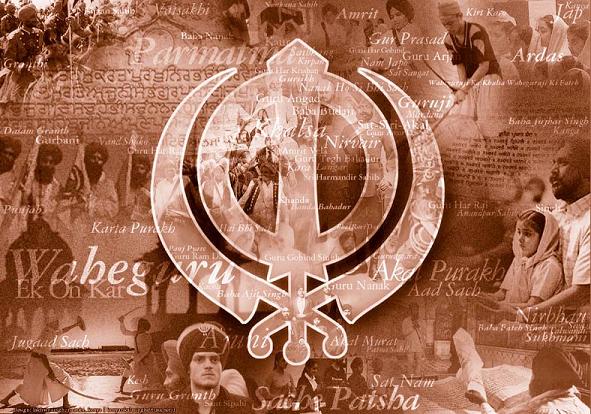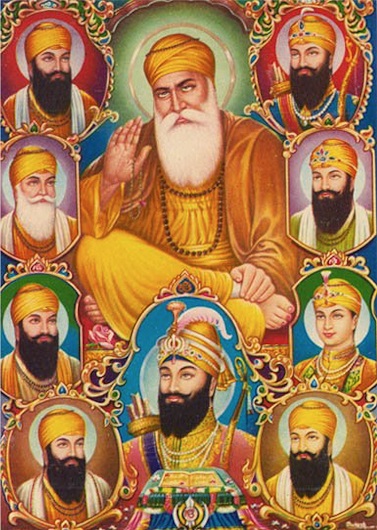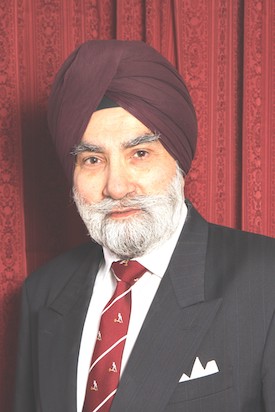Delivery of pre-partition promises by Congress leadership, was the only Sikh political objective up to June 1984. At no time was there any Sikh threat to India's integrity as a country.
In the aftermath of papers revealed under the 30 years rule, what needs to come out with reference to official communications, including Cabinet discussions (e.g. in November 1984), is the British Government's policy towards the Sikhs as a UK minority community; and towards the Indian Government, before and after the Indian army siege of Punjab, and the invasion of Darbar Sahib and about 40 other historical Sikh shrines in June, and the organised Delhi and India-wide massacre of Sikhs in November 1984.
A key passage in the Anandpur Sahib Resolution reads:
"......thus bringing main contiguous Sikh population and Sikh habitats with this autonomous Sikh region as an integral part of the Union of India, and, thirdly, this Sikh autonomous region may be declared as entitled to frame its own internal constitutions on the basis of having all powers to and for itself except Foreign Relations, Defense, Currency and General Communications which will remain subjects within the jurisdiction of the Federal Indian Government."
(Anandpur Sahib Resolution - read full resolution at link below)
In the current debate, British and Indian politicians, and even some Sikhs, forget that the Sikh leaders, including Baba Jarnail Singh Bhindranwale were in Darbar Sahib following Ardaas ( supplication) before Sri Akal Takht Sahib to negotiate geographical interpretation of Sikh political rights and aspirations on the basis of Anandpur Sahib Resolution.
Yet, after operation Blue Star, Indian PM Indira Gandhi wrote to British PM Margaret Thatcher, "Their objective was secession and disrupting the unity of the country. The paramilitary forces were insufficient in number to control growing terrorist activities. So we had to send in the army." British PM's response was not an expression of regret or sympathy for the thousands killed on a sacred day for the Sikhs, but sympathy for the Indian PM who decided on a frontal attack on Darbar Sahib (maybe, much against British advice). Indira Gandhi was looking for a final military solution to a just democratic political challenge from the Sikhs.
With over 80% of sacrifices made for India's independence from colonial rule by the Sikhs during the Indian freedom movement, Congress leaders had made unequivocal promises to the Sikhs as a distinct people in independent India. These promises were not kept.
The Anandpur Sahib Resolution is a reminder on record, of those promises.
Within a few weeks of each other, in February and March 1984, two UK public servants were giving opposite advice to the Prime Minister Indira Gandhi, and the President of India Giani Zail Singh respectively. One was on official business giving SAS type military advice about invading Darbar Sahib; and the other, a visible identity Sikh, on holiday visiting parents and family, and like some other diaspora Sikhs, was expressing grave concern about the built-up of army around Darbar Sahib. (Giani Zail Singh expressed a strong desire to visit UK, if an official invitation could be arranged. Surely, he could have used Indian diplomatic channels instead of expressing that desire to a visiting UK Sikh civil servant. Towards end March, 1984, he seemed isolated and preferred to walk in the garden when talking to visitors.)
Few seem to understand the historical theo-political national status of Darbar Sahib in the Sikh psyche. It is the place where the Sikhs have always gathered to take political decisions over the centuries. Sikhs have made huge sacrifices to keep up that tradition.
After over 200 years of Anglo-Sikh relations, with the historical background of early Anglo-Sikh treaties, and wars followed by friendship, through battles like Saragarhi and the role of the Sikhs in the two World Wars, the ignorance shown about Sikhs by British policy makers is mind bogglingly cruel. Sikh image as a people and identity continue to suffer through ignorant security profiling in the West.
This is as a direct result of British policy towards the Sikhs (now being exposed) before and after the invasion of Darbar Sahib.
Despite the House of Lords decision in the Mandla case (1983), Sikhs continue to be denied monitoring in own right as a distinct theo-national community for equal opportunities and delivery of services in diverse fields. The mainstream media shows remarkable ignorance about Sikh religion, history and identity. The most visible and largest minority community in the UK is made invisible by statistics and TV cameras! Visible identity Sikhs are missing from the House of Commons. Their fault or the political environment and selection process?
In the aftermath of the exposure of British Government involvement in 1984 events, in addition to public and international enquiries to establish the truth about 1984 Sikh genocide, the need is to redefine meaningful and genuine Sikh/Government dialogue.
Further reading -
-
Anandpur Sahib Resolution

-
Challenges to Sikh Identity in The West

- The Golden Temple: Its Theo-political Status
© Copyright Gurmukh Singh (U.K.)
E-mail: sewauk2005@yahoo.co.uk
Please acknowledge quotations from this article
Articles may be published subject to prior approval by the author


